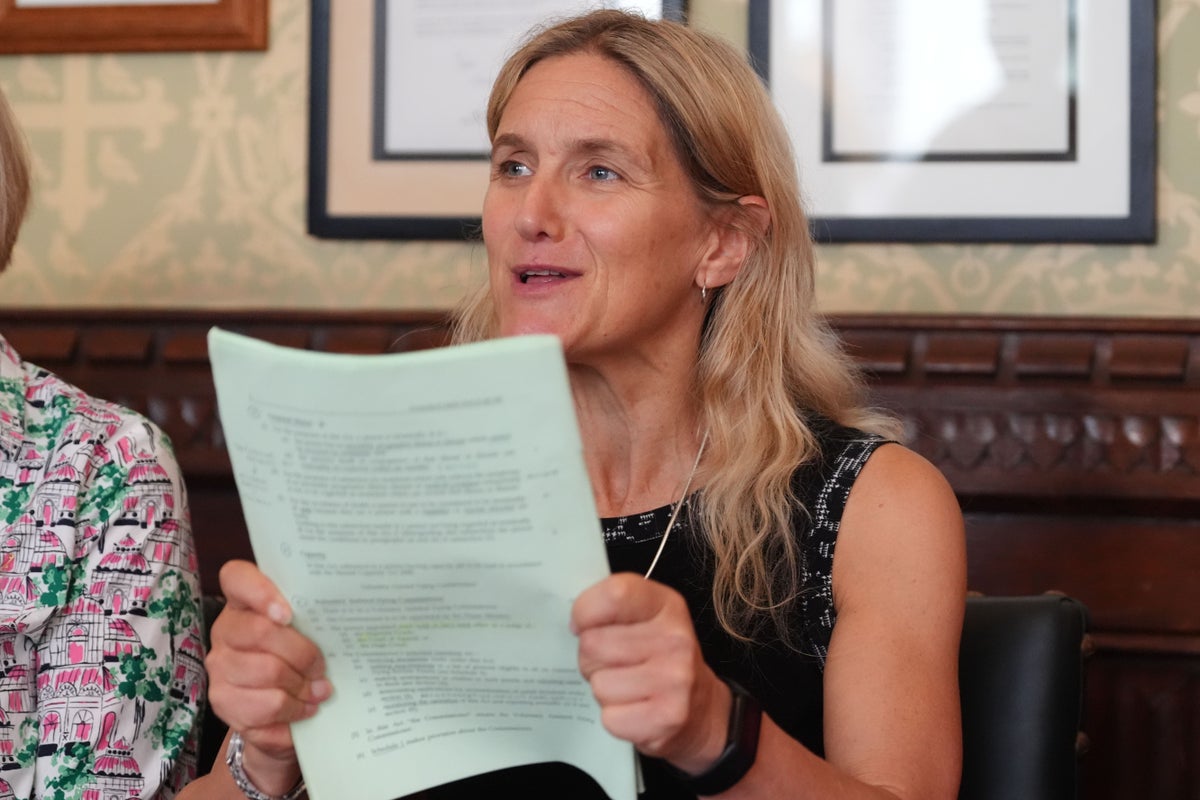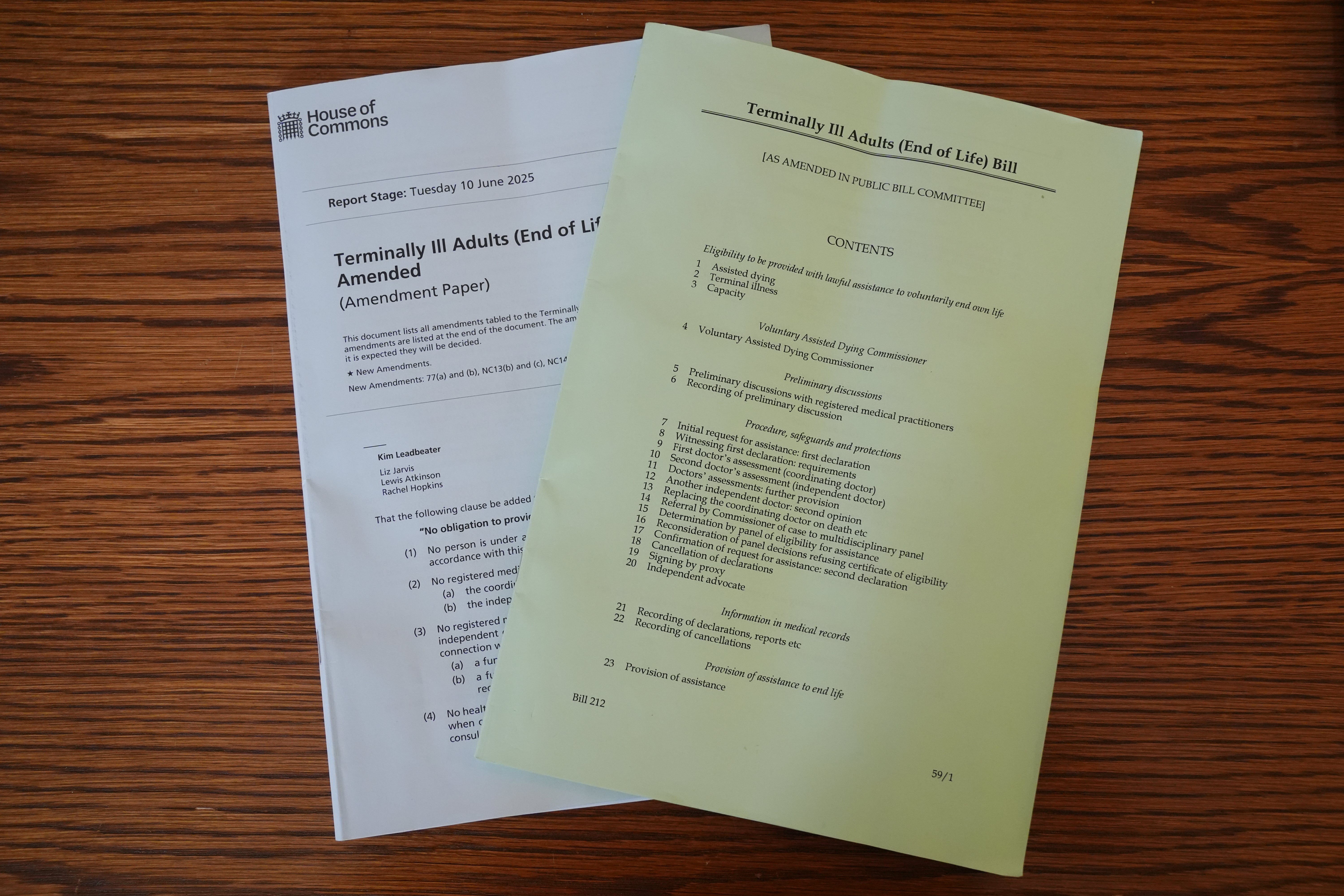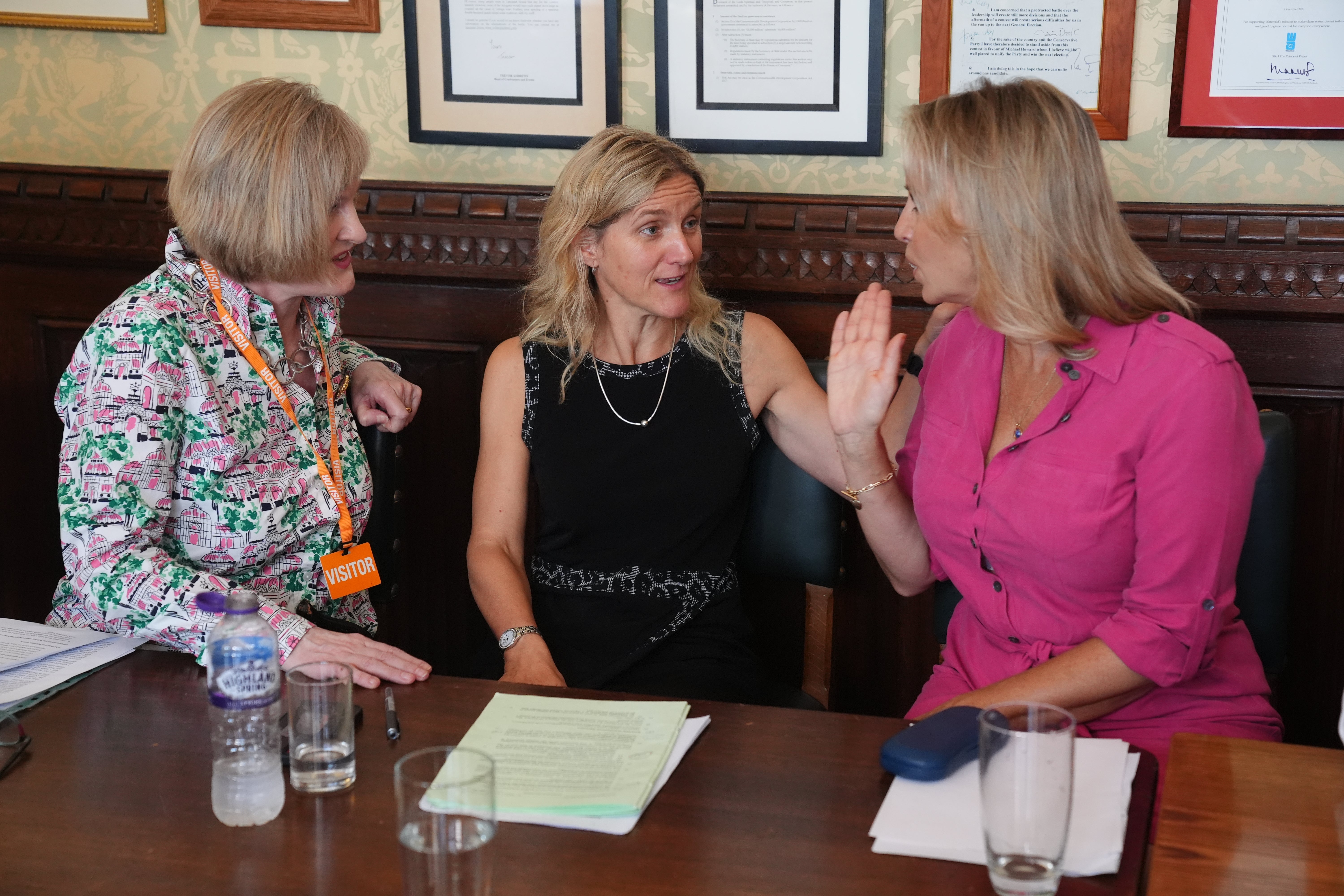
Kim Leadbeater said she is confident MPs will back her assisted dying Bill in Friday’s crucial vote, as she warned it could be a decade before the issue is put to Parliament again should it fail to pass.
The Labour MP was joined by bereaved and terminally ill people on the eve of the vote, as they recounted the emotional toll the current law has had on them and their loved ones and pleaded for change.
Since introducing her Terminally Ill Adults (End of Life) Bill in Parliament last year, Ms Leadbeater has argued dying people must be given choice at the end of their lives, but opponents of her Bill have warned it fails to guarantee protections for society’s most vulnerable.
Making her case for a change in the law, Ms Leadbeater said: “We have the most robust piece of legislation in the world in front of us tomorrow, and I know that many colleagues have engaged very closely with the legislation and will make their decision based on those facts and that evidence, and that cannot be disputed.
“But we need to do something, and we need to do it quickly.”
A YouGov poll of 2,003 adults in Great Britain, surveyed last month and published on Thursday, suggested public support for the Bill remains high at 73% – unchanged from November.
The proportion of people who feel assisted dying should be legal in principle has risen slightly, to 75% from 73% in November.
Friday will be the first time the Bill has been debated and voted on in its entirety since last year’s historic yes vote, when MPs supported the principle of assisted dying for England and Wales by a majority of 55.
MPs are entitled to have a free vote on the Bill, meaning they decide according to their conscience rather than along party lines.
The relatively narrow majority means every vote will count on Friday, to secure the Bill’s passage to the House of Lords for further debate and voting.
As an example, the Bill would fall if 28 MPs switched directly from voting yes to no, but only if all other MPs voted exactly the same way as they did in November, including those who abstained.

Asked how she is feeling ahead of the vote, Ms Leadbeater acknowledged there could be some change in the numbers, but insisted she is still confident the Bill will pass the third reading stage and move through to the Lords.
She told reporters on Thursday: “There might be some small movement in the middle, some people might maybe change their mind one way, others will change their mind the other way but fundamentally I don’t anticipate that that majority would be heavily eroded so I do feel confident we can get through tomorrow successfully.”
Prime Minister Sir Keir Starmer has indicated he will continue to back the Bill, as he did last year, saying earlier this week that his “position is long-standing and well-known” on assisted dying.
Health Secretary Wes Streeting, while describing Ms Leadbeater’s work on the proposed legislation as “extremely helpful”, confirmed in April that he still intended to vote against it.

Ms Leadbeater warned: “If we don’t pass this law tomorrow, it could be another decade before this issue is brought back to Parliament.
“It’s 10 years since we last had a vote, 2015, if we leave it now, I worry it could be a heck of a long time and in that time how many more stories (of suffering) will we hear?”
Ms Leadbeater was joined for the press briefing by surgeon, barrister and MP Neil Shastri-Hurst and former lord chancellor Lord Charlie Falconer.
Also present were terminally ill patients Sophie Blake, a single mother with terminal breast cancer, and Pamela Fisher, a Church of England lay preacher.
While supporters of the Bill say it is coming back to the Commons with better safeguards after more than 90 hours of parliamentary time spent on it to date, opponents claim the process has been rushed and that changes to the Bill mean it is now weaker than it was when first introduced.
Some Labour MPs opposed to the Bill wrote to Commons leader Lucy Powell earlier this week to ask for more time, but she confirmed to Parliament on Thursday that timing is a matter for the House to decide because it is not a piece of Government legislation.
Ms Leadbeater said she felt the need to “strongly push back” on the accusation of the legislation being rushed.
She said: “This is not being rushed through, this is not a quick thing that’s happened overnight, it has gone through hours and hours and hours of scrutiny.”
She added she also finds it “difficult” to accept that the process itself for someone to have their assisted dying application approved is “quite lengthy”, but said this is necessary because of the “thorough” safeguards.
The proposed legislation would allow terminally ill adults in England and Wales, with fewer than six months to live, to apply for an assisted death, subject to approval by two doctors and a panel featuring a social worker, senior legal figure and psychiatrist.
Significant changes since it succeeded in the initial vote in Parliament include the replacement of a High Court safeguard with the expert panels, and a doubling of the implementation period to a maximum of four years for an assisted dying service to be in place should the Bill pass into law.
Academic and disability campaigner Miro Griffiths has sent an open letter to MPs asking them not to endorse the “perilous piece of legislation” even if they support assisted dying in principle.
He wrote: “I would ask you to devote your energy to improving ethical and progressive forms of support: blanket suicide prevention, palliative care, and measures that create a more just and inclusive society for disabled people. This is the better way forward.”
New schemes to ease flow of veterinary medicines into Northern Ireland
Trump warned by Starmer about ‘ramping up’ Middle East conflict with strikes on Iran
Maintenance fund to give £9bn a year to fix schools, hospitals and prisons
Here’s the exact amount every generation needs to save for a comfortable retirement
Revealed: England’s million-pound property hotspots revealed as prices soar
Archeologists reveal 2,000-year-old wall art from ‘Beverly Hills of Roman London’







